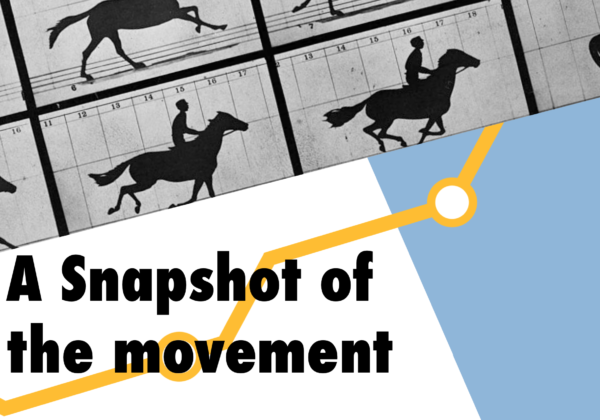
Warning! TikTok can damage your child’s health.
Over the last 18 months, amongst other things, I have been doing some research into the rapidly changing world of technology, with a particular focus on the development of the internet (ironically, formally known as the worldwide web – a web in which we are all caught!) and social media. My interest is in examining how this is shaping culture and of course us as human beings. I’ll write more about my findings over the next year. In the meantime I am going to flag up some of dangers this multi-trillion dollar global Tech Empire presents to you, me, and more importantly, future generations.
Many of you will have heard of TikTok. It’s a video-focused social networking platform owned by the Chinese company ByteDance. It hosts a variety of short-form user videos, from genres like dance, comedy and music, with durations from 15 seconds to three minutes. Tiktok is one of the fastest growing social media apps in the world. Recently, The Wall Street Journal completed an excellent piece of investigative journalism, investigating the platform’s impact on its teenage users. It was published in September – How TikTok serves up Sex and Drugs Videos to Minors by Rob Berry, Georgia Wells, John West, Joanna Stern and Jason French. The newspaper has produced an accompanying YouTube video that can be watched by clicking on this linkhttps://www.youtube.com/watch?v=nfczi2cI6Cs . If you’re the parent of a teenage child, both the article and the YouTube video deserve your attention. Their findings are horrifying!
In order for the Wall Street Journal to understand what TikTok shows young users, they created 100 automated accounts, or bots, including 31 accounts registering as users aged 13-15 and then they were turned loose to browse TikTok’s ‘For You feed’; the highly personalised and never ending feed curated by the platform’s algorithm. (An algorithm is an automated observation of your watch and click pattern). TikTok only needs one critical piece of information to work out what a user wants: the amount of time you pause over a piece of content. Every second you hesitate or re-watch, the app tracks you and then feeds you with similar or connected content.

In their analysis of the videos served up to these children, among the biggest users of this platform – they found that through its powerful algorithms it quickly drove them into limitless spoils of content about sex and drugs. Here are a few highlights from their article published in the Journal in early September:
‘After signing up for an account on TikTok, a 13-year-old user started by searching the app for “onlyfans”—the name of a site known for hosting adult entertainment—then watched a handful of videos in the results, including two selling pornography.
‘As the user scrolled through the videos appearing in the feed, lingering on the more sexually oriented ones while moving more quickly past others, the ‘For You feed’ was soon almost entirely dominated…The app’s algorithm had pushed the user into a rabbit hole that many users call “Kinktok,” featuring whips, chains and torture devices. Some of the content is banned by the platform.’
‘TikTok also showed the Journal’s teenage users more than 100 videos from accounts recommending paid pornography sites and sex shops. Thousands of others were from creators who labelled their content as for adults only.’
‘TikTok served one account registered as a 13-year-old at least 569 videos about drug use, references to cocaine and meth addiction, and promotional videos for online sales of drug products and paraphernalia. Hundreds of similar videos appeared in the feeds of the Journal’s other minor accounts.’
‘Still others encouraged eating disorders and glorified alcohol, including depictions of drinking and driving and of drinking games.’
 The article points out that attempts are made by TikTok to patrol the platform’s content, relying on a combination of algorithms and more than 10,000 people to police its ever growing volume of content, the company said that users upload tens of thousands of videos every minute. The company told the WSJ that moderators of the platform’s content concentrate on the most viewed videos, this leaves videos with a lower count rate un-reviewed. As you would imagine it is difficult to ensure the right controls are in place when the app’s growing at such a phenomenal rate. In the US alone, TikTok users consuming and producing videos have grown to 4 times the level of users in 2019.
The article points out that attempts are made by TikTok to patrol the platform’s content, relying on a combination of algorithms and more than 10,000 people to police its ever growing volume of content, the company said that users upload tens of thousands of videos every minute. The company told the WSJ that moderators of the platform’s content concentrate on the most viewed videos, this leaves videos with a lower count rate un-reviewed. As you would imagine it is difficult to ensure the right controls are in place when the app’s growing at such a phenomenal rate. In the US alone, TikTok users consuming and producing videos have grown to 4 times the level of users in 2019.
What do I do?
I have no easy answers to this question. All I am asking you to do is think about the impact that your child’s handheld device is having on them. It goes without saying that your ‘worldview’ and that of your child are being shaped by what is watched. Your handheld device is the tobacco of the 21st century. It’s addictive. The tech giants built it that way and it has you and many of our children in its grip. So, you and I have to make a decision, both for us and the next generation that is in our care. Will we remain slaves or not?
In an interview with the Guardian newspaper in 2018 Chamath Palihapitiya, former Vice President of user growth at Facebook, has said that: “I can control my decision, which is that I don’t use that sh%t. I can control my kids’ decisions, which is that they’re not allowed to use that sh%t… The short-term, dopamine-driven feedback loops that we have created are destroying how society works.” Chamath is not alone in her concerns. Nearly eight years ago, Steve Jobs, who was CEO of Apple for many years, told reporters that his kids don’t use iPads and that “We limit how much technology our kids use at home.”
It’s up to us!
Further resources
There are some other resources that may help you. If you haven’t watched ‘The Social Dilemma’, a Netflix film, it’s definitely worth watching. It explores the addictive nature of social media and how many Silicone Valley workers do not allow their own kids to use the technology their parents spend their lives developing and promoting.
Also, the BBC Panorama episode “Is TikTok Safe” recently aired that did a similar experiment with dummy accounts and TikTok. https://www.bbc.co.uk/programmes/m000p3p9
Finally, BBC Sounds also has an interesting series available called ‘The Hackers’. Gabrielle Foreman, an American anthropologist explores hacking from an anthropological perspective. https://www.bbc.co.uk/sounds/brand/m0012fjk
Related posts
 Feasts & Festivals – What’s the Point? - Together Narrative As 2023 draws to a close and the New Year almost upon us, I reflect on the past 12 months and focus on certain highlights that will remain with me for many years. One of these, for a whole variety of reasons, is undoubtedly the Together 23 Festival at Himley on July 8. […]
Feasts & Festivals – What’s the Point? - Together Narrative As 2023 draws to a close and the New Year almost upon us, I reflect on the past 12 months and focus on certain highlights that will remain with me for many years. One of these, for a whole variety of reasons, is undoubtedly the Together 23 Festival at Himley on July 8. […] Snapshot – A review of a year of movement. - Snapshot 2023 – Love Black Country As we share this annual snapshot, we want to take a moment to express our gratitude to you all. Love Black Country has been part of this regional Church community for over 30 years, and it’s humbling to see the progress we’ve made together. This movement isn’t just about […]
Snapshot – A review of a year of movement. - Snapshot 2023 – Love Black Country As we share this annual snapshot, we want to take a moment to express our gratitude to you all. Love Black Country has been part of this regional Church community for over 30 years, and it’s humbling to see the progress we’ve made together. This movement isn’t just about […] MOVEMENT – How a regional youth gathering changed a church - Last week 200 young people gathered TOGETHER from across the Black Country to worship & pray together, this regional evening was a roaring success with young people pouring themselves out for Jesus and coming forward for prayer. The sense of the spirit was tangible. We’re sure that investing in young people will feed, grow and […]
MOVEMENT – How a regional youth gathering changed a church - Last week 200 young people gathered TOGETHER from across the Black Country to worship & pray together, this regional evening was a roaring success with young people pouring themselves out for Jesus and coming forward for prayer. The sense of the spirit was tangible. We’re sure that investing in young people will feed, grow and […] MOVEMENT – Youth Prayer for the Black Country - We’re back! After successfully gathering nearly 200 young people for the Youth Prayer Gathering in April, we’re keen to come together again. This time with a new name, as selected by young people at Together Festival MOVEMENT This is MOVEMENT, named by young people at Together Festival – a moment to worship, pray and gather […]
MOVEMENT – Youth Prayer for the Black Country - We’re back! After successfully gathering nearly 200 young people for the Youth Prayer Gathering in April, we’re keen to come together again. This time with a new name, as selected by young people at Together Festival MOVEMENT This is MOVEMENT, named by young people at Together Festival – a moment to worship, pray and gather […]